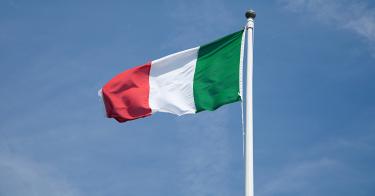American politics may be looking more like Italian politics. That isn’t necessarily a good thing for bilateral relations.
While the U.S. still has only two major parties, the strain of the divide between them makes consensus governing from the center increasingly difficult. That condition defines Italian politics with it multiplicity of parties pulling the peninsula in different directions. Recent municipal elections revealed more fracturing, with ambivalent results for Americans looking for a stronger partner in Southern Europe.
>>> Germany: The Weak Link in the Transatlantic Community?
The local elections also did not completely clarify the relationship between the PD and Five Star Movement, the two main political forces joining the Italian center-left world. The two parties allied in Naples, but ran separately in other cities (such as Milan and Rome). Certainly, though, the Five Star Movement emerged seriously weakened; in 2016 it did better in Rome and Turin, running alone.
In short, it is far from clear if the progressives can offer a successful unified front in future national elections. Municipal elections do not automatically have consequences at the national level. The center-right coalition is still favored to win the 2023 general election.
Even if the center-right can avoid the mistakes, rivalries and internal cannibalization of electoral consensus that doomed them in municipal elections, it is not clear they can deliver a ruling coalition that will make for a stronger partner for the U.S. Large sectors of the Italian center-left world (especially the PD) have strong ties with the U.S. Democratic Party. The center-right coalition is more ambivalent, not near as coherent in their political views as American Republicans with few institutional ties to U.S. politicians on either side and a bit all over the place when it comes to European and transatlantic relations.
Nevertheless, national elections are unlikely to overturn the foreign policies of the grand coalition government led by Mario Draghi. Since taking office, Draghi’s policies have more closely aligned with the U.S. Still, he is not unchallenged. In February, there will be elections for the next President of the Republic.
This could well turn into an indirect political duel over the influence of Washington and Beijing. There are a number of potential presidential candidates including Draghi (who is considered close to Washington) and the former Prime Minister Romano Prodi (a stanch supporter of increased “dialogue” between Rome and Beijing). The center-right coalition today is firmly pro-US and worried about the Chinese penetration in Italy. On the other side, the situation is messier. The Five Star Movement is just flat out soft on Beijing, while the PD includes diverse views on China.
Russia is also an issue. Here, the center-right is split. Some factions are pro-US, others pro-Russian. Case in point, Lega’s Paolo Formentini is pro-NATO, but many in his party are pro-Putin. Overall, however, relations with Russia have cooled in the past two years, especially since the party began to hold an anti-China line and also because of charges that Russia tried to meddle in internal party politics in 2019.
>>> Rome Could Be Washington’s Ideal Partner on China
On strategic autonomy, Formentini, the vice president of the Foreign Affairs Commission of the Chamber of Deputies, is strongly pro-NATO. More generally, the League is not pro-French, and Paris is the main instigator of support for an independent European security identity.
At the end of the day, the truth is that the Italian center-right coalition focuses little on foreign policy, and that hamstrings its ability to lead in transatlantic relations. Its opponents, on the other hand, are more proactive on the foreign policy front. The PD has deep ties to the U.S. Democratic Party, and the Five Star Movement is strongly pro-Chinese. These two parties are allies on a national level, and that makes for a bit of a toxic mix. Biden’s foreign policy is an absolute dumpster fire, and neither mainstream American political party favors giving China a pass.
The U.S. would greatly benefit from stronger Italian leadership on NATO’s southern flank. As Italian politics meanders along in the next few years, that strength may or may not develop. Much will depend on the leadership of Italy’s center-right coalition and the choices they make.
This piece originally appeared in Real Clear World




